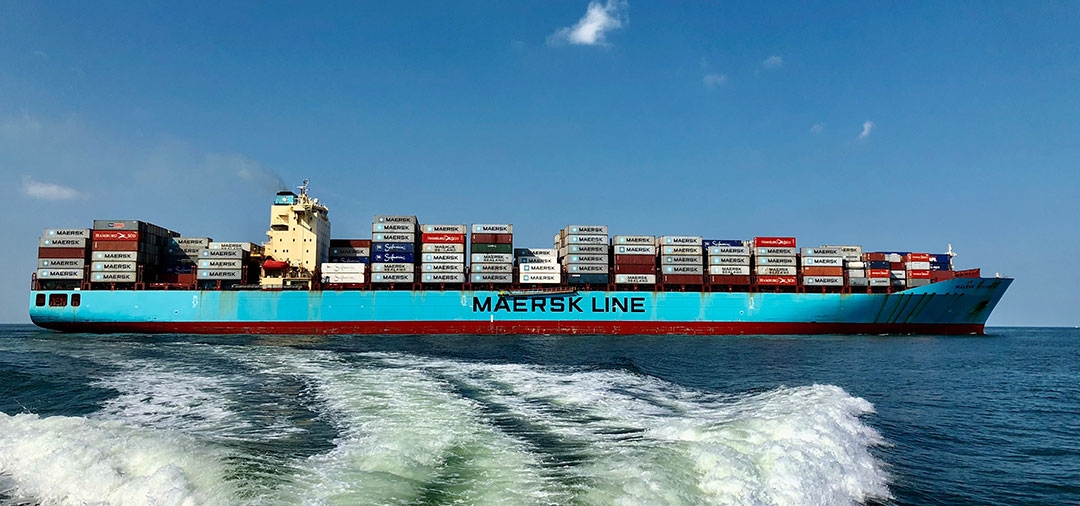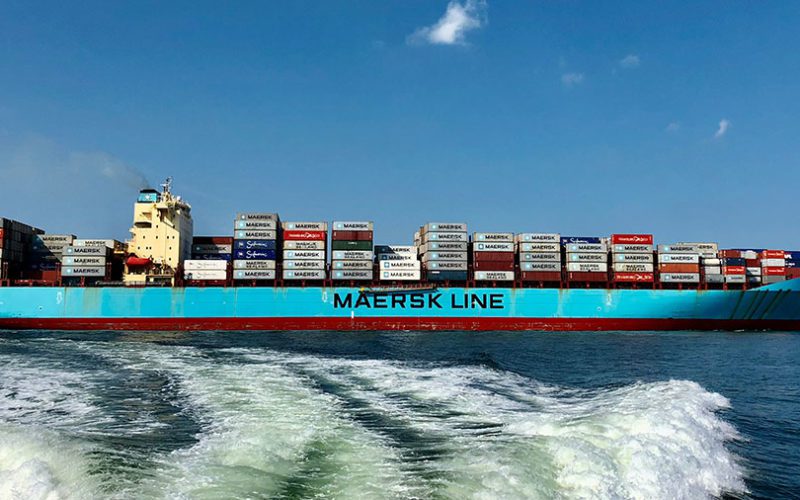
A.P. Moller-Maersk is releasing a decade’s worth of weather observations into the public domain in an effort to assist climate change research.
The company hopes the data will help scientists predict the weather and create models for climate change, said Lee Kindberg, Maersk’s head of environment and sustainability in North America.
“It’s part of our global strategy to address the climate problem because we have data nobody else does,” Kindberg told Professional Mariner. “We see the climate crisis as urgent.”
Maersk’s oceangoing ships have been equipped with sensors that collect data, including information about water temperature and wind speed, since 2012. That data set has grown to more than 9 million observations.
The company now has the capacity to deliver this information in real time for public consumption. It will be shared through the Global Ocean Observing System (GOOS), a worldwide platformfor observations, modeling and analysis of marine and ocean data.
It is jointly operated by UNESCO and the World Meteorological Organization.
Adding the information collected by Maersk vessels increases publicly available ocean weather data by 28 percent.
Dr. Johannes Karstensen of the GEOMAR Helmholtz Center for Ocean Research in Kiel, Germany, said the observations will help scientists better understand weather and climate. “The data will help to better constrain past ocean surface conditions but also help to improve future predictions — from weather to climate,” he said.
Aslak Ross, head of marine standards at Maersk, said in a statement that the company is proud to make this contribution to the scientific community.
“Climate change is without a doubt one of the biggest challenges the global community is facing, and we have set an ambitious strategy for our business to achieve net-zero greenhouse gas emissions in 2040,” he said. “But we have also as a part of our ESG strategy committed ourselves to contribute to climate and ocean science with data gathered from our vessels.”
ESG stands for environmental, social and governance, and it can be measured to determine a company’s environmental stewardship. That ESG score can influence outside investment in a particular company.
In January, leaders at Maersk announced new emissions targets to achieve net-zero greenhouse gas emissions in 2040, a decade ahead of the company’s initial 2050 goal. The targets go beyond previous efforts to reduce emissions related to the ocean fleet as they cover all direct and indirect emissions across the entire business.
“The science is clear, we must act now to deliver significant progress in this decade. These very ambitious targets mark our commitment to society and to the many customers who call for net-zero supply chains,” CEO Soren Skou said in a statement.
A minimum of 30 percent of cargo will be transported using sustainable aviation fuels, which emits less carbon than traditional marine fuels. The company will set targets for inland transportation later this year.
By 2030, the company plans a 50 percent reduction in greenhouse gas emissions intensity on the ocean, and a 70 percent absolute reduction of greenhouse gas emissions at terminals.
“Our updated targets and accelerated timelines reflect a very challenging yet viable pathway to net-zero, which is driven by advances in technology and solutions. What is needed is a rapid scale-up, which we will strive to achieve in close collaboration with customers and suppliers across the entire supply chain,” Henriette Hallberg Thygesen, Maersk’s CEO of fleet and strategic brands, said at the time.
The company plans to introduce the first methanol-powered oceangoing container vessels in the first quarter of 2024. Hyundai Heavy Industries is building eight vessels for Maersk with an agreement for four more in 2025.
More than half of Maersk’s 200 largest customers have set, or are in the process of setting, zero-carbon or ambitious science-based targets for their supply chains. These companies include Amazon, Disney, HP Inc., Levi Strauss & Co., The Proctor and Gamble Company and others. Kindberg said the company intends to “lean in” with its customers to achieve these goals.

